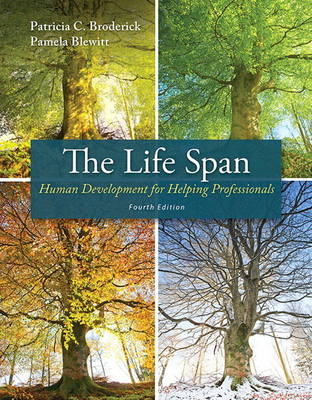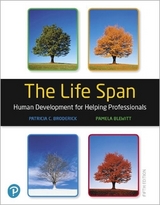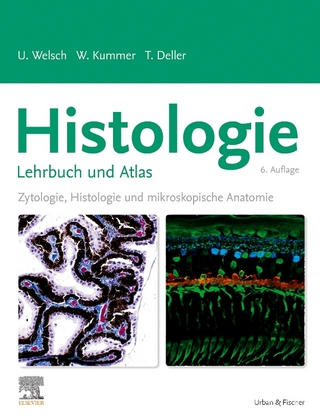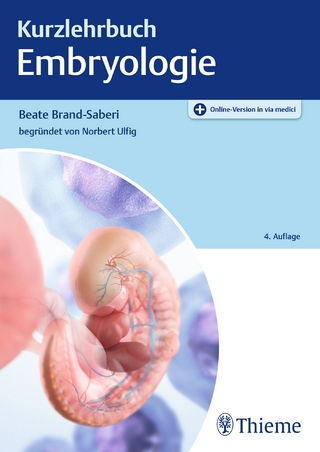
The Life Span
Pearson (Verlag)
978-0-13-294288-1 (ISBN)
- Titel erscheint in neuer Auflage
- Artikel merken
The Life Span: Human Development for Helping Professionals, 4/e, provides an in-depth look at the science of human development, highlighting theories and research that have useful applications for individuals working in fields such as education, counseling, and social work. The main purpose of this book is to provide the reader with information that can be translated into professional “best practice” applications. Throughout, the text reflects the contemporary view that life span development is a process deeply embedded within and inseparable from the context of family, social network, and culture.
Because the book is designed for graduate students, most topics, especially those that have special relevance to helping professionals, are covered in greater depth than in a typical life span text. The expanded coverage of research in these areas will enhance students’ understanding of the scientific basis for application to practice. The Enhanced Pearson eText features embedded video to illustrate key concepts and pop-up assessments to help students assess their proficiency.
Improve mastery and retention with the Enhanced Pearson eText*
The Enhanced Pearson eText provides a rich, interactive learning environment designed to improve student mastery of content. The Enhanced Pearson eText is:
Engaging. The new interactive, multimedia learning features were developed by the authors and other subject-matter experts to deepen and enrich the learning experience.
Convenient. Enjoy instant online access from your computer or download the Pearson eText App to read on or offline on your iPad® and Android® tablet.*
Affordable. The Enhanced Pearson eText may be purchased stand-alone or with a loose-leaf version of the text for 40-65% less than a print bound book.
*The Enhanced eText features are only available in the Pearson eText format. They are not available in third-party eTexts or downloads.
*The Pearson eText App is available on Google Play and in the App Store. It requires Android OS 3.1-4, a 7” or 10” tablet, or iPad iOS 5.0 or later.
From reviews of the book:
“This book is unique in that it is research-based, includes comprehensive coverage of important course topics, and offers helping professionals information about human development that will enhance service provision to clients across the lifespan.”
--Mary M. Chittooran, Saint Louis University
“The writing style is clear, interesting and engaging and is at a level appropriate for my students. Nicely done. . . . [The] case studies [and] developmental psychopathology sections are strengths. . . . [The book is] well organized, well-written, broad-based . . ., [and] insightful. [I] especially liked the authors’ focus on practical and applied therapies, as well as their emphasis on research-based therapies that incorporate sound principles of human developmental.”
--Rosalie A. Rohm, Ball State University
“This readable, well organized text addresses the depth and scope of development. The text extends students knowledge of the material by providing a wealth of applicable information for those who are or will be in a helping profession. . . . [Compared to other available texts, this one is] far superior in terms of the balance of scope and depth.”
--Kathryn Cooper, Northern Colorado University
Patricia Broderick, Ph.D. is a Research Associate with the Prevention Research Center at Penn State University and former director of the Stress Reduction Center at West Chester University of PA. She holds a Master’s degree in Counseling from Villanova and a Ph.D. in School Psychology from Temple University. She is a licensed psychologist, certified school psychologist (K-12), certified school counselor (K-12). and certified teacher. She was trained in Mindfulness-Based Stress Reduction (MBSR) at the Center for Mindfulness (CFM) at UMASS Medical Center and has taught MBSR since 2003. Her research interests include mindfulness in education, gender differences in coping styles of early adolescents, and relationships between rumination and the development of depression. Pamela Blewitt, Ph.D. is a professor of Psychology at the Villanova University College of Liberal Arts and Sciences. A leading authority on how young children acquire vocabulary, she has researched the basic cognitive processes that support word learning while delving into environmental factors that enrich verbal expression such as shared book reading and adult-child conversation. Blewitt can also address how the quality of child care affects early language and literacy and discuss how to make developmental science accessible to parents, caregivers and helping professionals. She has a B.A. and Ph.D. from the University of Rochester and an M.A. from Teachers College, Columbia University.
Chapter 1: Organizing Themes in Development
Reflection and Action
A Historical Perspective on Contemporary Developmental Theories
Applying Theory to Practice
Major Issues in Development
Applications
Focus on Developmental Psychopathology
Summary
Case Study
Journal Questions
Key Terms
Chapter 2: Epigenesis and the Brain: The Fundamentals of Behavioral Development
The Nature—Nurture Illusion
Mechanisms of Genetic Influence: How Do Genes Work?
Explaining Behavior: Focus on Genetics
Epigenesis: The Gene—Environment Dance
Healthy Prenatal Development
Applications
Focus on Developmental Psychopathology
Summary
Case Study
Journal Questions
Key Terms
Chapter 3: Neural and Cognitive Development in the Early Years
The Brain
Cognitive Development
Applications
Summary
Case Study
Journal Questions
Key Terms
Chapter 4: Emotional Development in the Early Years
Theories of Emotions: The State of the Art
Early Caregiver—Infant Interactions and Emotional Development
Attachment: Early Social Relationships
Applications
Focus on Developmental Psychopathology
Summary
Case Study
Journal Questions
Key Terms
Chapter 5: The Emerging Self and Socialization in the Early Years
The Self-System: Traditional Conceptions
The Early Development of the Self-System
Early Socialization: Parenting and the Development of the Self-System
Conscience: The Beginnings of a Moral Self
Applications
Summary
Case Study
Journal Questions
Key Terms
Chapter 6: Realms of Cognition in Middle Childhood
Physical and Brain-Related Changes
Cognitive Development
Social Cognition
Applications
Summary
Case Study
Journal Questions
Key Terms
Chapter 7: Self and Moral Development: Middle Childhood Through Early Adolescence
Self-Concept
The Moral Self
Applications
Focus on Developmental Psychopathology
Summary
Case Study
Journal Questions
Key Terms
Chapter 8: Gender and Peer Relationships: Middle Childhood Through Early Adolescence
Sex Role Development
Peer Relationships
Applications
Summary
Case Study
Journal Questions
Key Terms
Chapter 9: Physical, Cognitive, and Identity Development in Adolescence
Physical Development
Cognitive Development
Identity Development
Applications
Focus on Developmental Psychopathology
Summary
Case Study
Journal Questions
Key Terms
Chapter 10: The Social World of Adolescence
Frameworklessness and Autonomy: A Model of Adolescent Social Identity
The Structure of the Peer Network
The Role of Parents
The Role of School
Leisure and Work
Media and the Consumer Culture
Risky Behavior and Social Deviance
Applications
Summary
Case Study
Journal Questions
Key Terms
Chapter 11: Physical and Cognitive Development in Young Adulthood
Physical Development in Young Adulthood
Cognitive Development in Young Adulthood
Applications
Focus on Developmental Psychopathology
Summary
Case Study
Journal Questions
Key Terms
Chapter 12: Socioemotional and Vocational Development in Young Adulthood
Lieben–To Love
Arbeiten–To Work
Applications
Summary
Case Study
Journal Questions
Key Terms
Chapter 13: Middle Adulthood: Cognitive, Personality, and Social Development
Life Span Developmental Theory
Influences on Adult Development: Sources of Stability
Influences on Adult Development: Sources of Change
Key Developmental Tasks of Midlife: The Continuing Pursuit of Intimacy and Generativity
Applications
Focus on Developmental
Summary
Case Study
Journal Questions
Key Terms
Chapter 14: Living Well: Stress, Coping, and Life Satisfaction in Adulthood
Life Satisfaction: What Is a Well-Lived Life?
Stress, Coping, and Well-Being in Midlife
Applications
Summary
Case Study
Journal Questions
Key Terms
Chapter 15: Gains and Losses in Late Adulthood
Aging Well
Experiencing Loss
Applications
Summary
Case Study
Journal Questions
Key Terms
Appendix: A Practitioner’s Guide to Psychological Science
| Erscheint lt. Verlag | 17.2.2014 |
|---|---|
| Sprache | englisch |
| Maße | 225 x 283 mm |
| Gewicht | 1619 g |
| Themenwelt | Kinder- / Jugendbuch ► Sachbücher |
| Schulbuch / Wörterbuch | |
| Geisteswissenschaften ► Psychologie ► Entwicklungspsychologie | |
| Studium ► 1. Studienabschnitt (Vorklinik) ► Histologie / Embryologie | |
| ISBN-10 | 0-13-294288-7 / 0132942887 |
| ISBN-13 | 978-0-13-294288-1 / 9780132942881 |
| Zustand | Neuware |
| Informationen gemäß Produktsicherheitsverordnung (GPSR) | |
| Haben Sie eine Frage zum Produkt? |
aus dem Bereich



